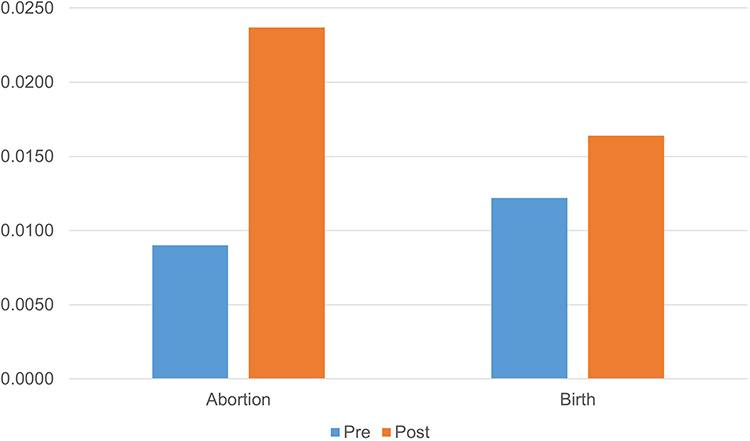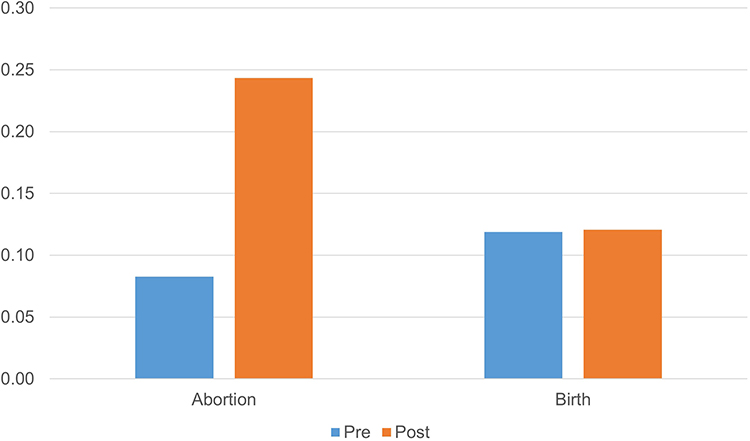Psychiatric Treatments Rise After Abortion, New Study
Washington, DC (11/10/2023)—Women exposed to abortion of a first pregnancy face elevated rates of subsequent psychiatric admissions, and longer hospitalization, than women who carry a first pregnancy to term, according to a new peer reviewed study published in the International Journal of Women’s Health.

Researchers tracked health insurance claims for 4,848 women who were eligible for Medicaid in each of the sixteen years tracked. The findings verified the hypothesis that abortion of a first pregnancy would be linked to elevated rates of subsequent psychological illnesses.
Prior to their first pregnancies, women who would eventually have abortions were less likely to have a history of psychiatrics treatments than women whose first pregnancies were carried to term (Figure 1, blue bars). But following their first pregnancy outcomes, women who aborted had a much higher rate of psychiatric treatments (orange bars).

Women who aborted their first pregnancy were also more likely to experience more severe post-abortion mental illnesses as indicated by the longer periods of psychiatric hospitalizations (Figure 2), which were evident only after their abortions.
In another study of Medicaid data, members of the same research team found that postpartum psychiatric risks increased for women who had a prior history of abortion, both for those with and without a prior history of mental health claims.
These finding contradict abortion proponents’ unfounded claim that the higher rates of psychological treatments consistently seen after an abortion can be entirely explained by a propensity for women with existing mental illnesses to have more abortions than women with better mental health.
At the same time, these findings are consistent with a national longitudinal survey of young adults which found, even after controlling for over twenty other factors, including prior mental health, that abortion is an independent risk factor for multiple mental health problems.
According to the Elliot Institute’s director David Reardon, a co-author of the study, “The best research consistently confirm that abortion is a independent risk factor for subsequent mental health problems, both for women with and without a prior history of mental health problems.”
Women deserve better.
Reference
[1] A Cohort Study of Mental Health Services Utilization Following a First Pregnancy Abortion or Birth. Studnicki J, Longbons T, Fisher J, Reardon DC, Skop I, Cirucci CA, et al. Int J Womens Health 2023;Volume 15:955–63.
[2] Reardon DC, Craver C. Effects of Pregnancy Loss on Subsequent Postpartum Mental Health: A Prospective Longitudinal Cohort Study. International Journal of Environmental Research and Public Health. 2021; 18(4):2179.
The abortion and mental health controversy: A comprehensive literature review of common ground agreements, disagreements, actionable recommendations, and research opportunities. Reardon DC. SAGE Open Med. 2018 Oct 29;6:2050312118807624
Abortion, substance abuse and mental health in early adulthood: Thirteen-year longitudinal evidence from the United States. Sullins DP. SAGE Open Med. 2016 Sep 23;4:2050312116665997. doi: 10.1177/2050312116665997

